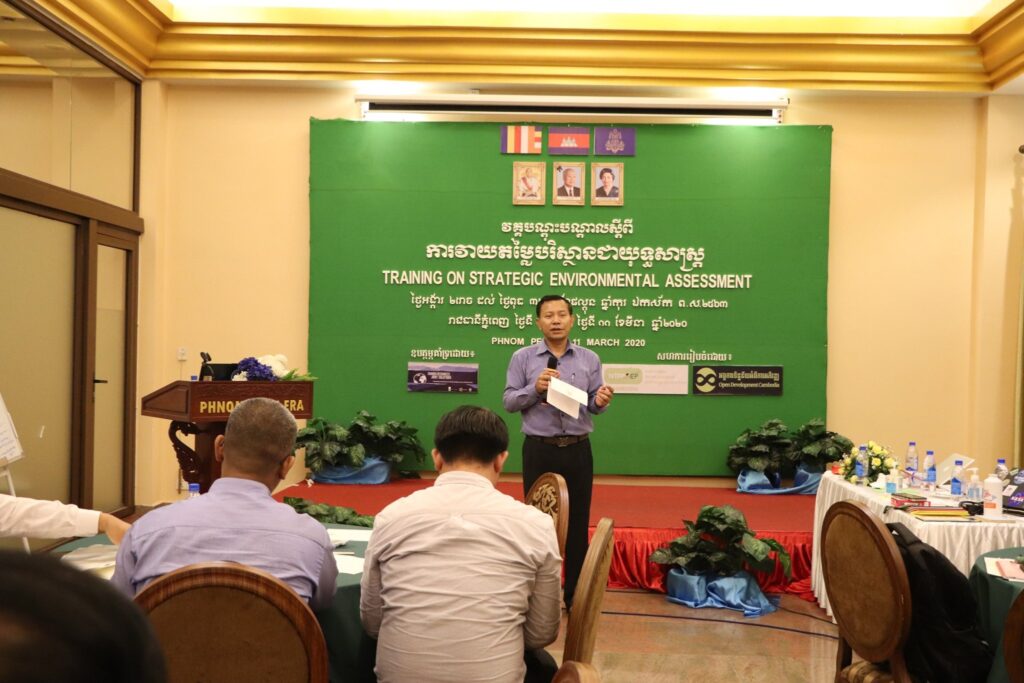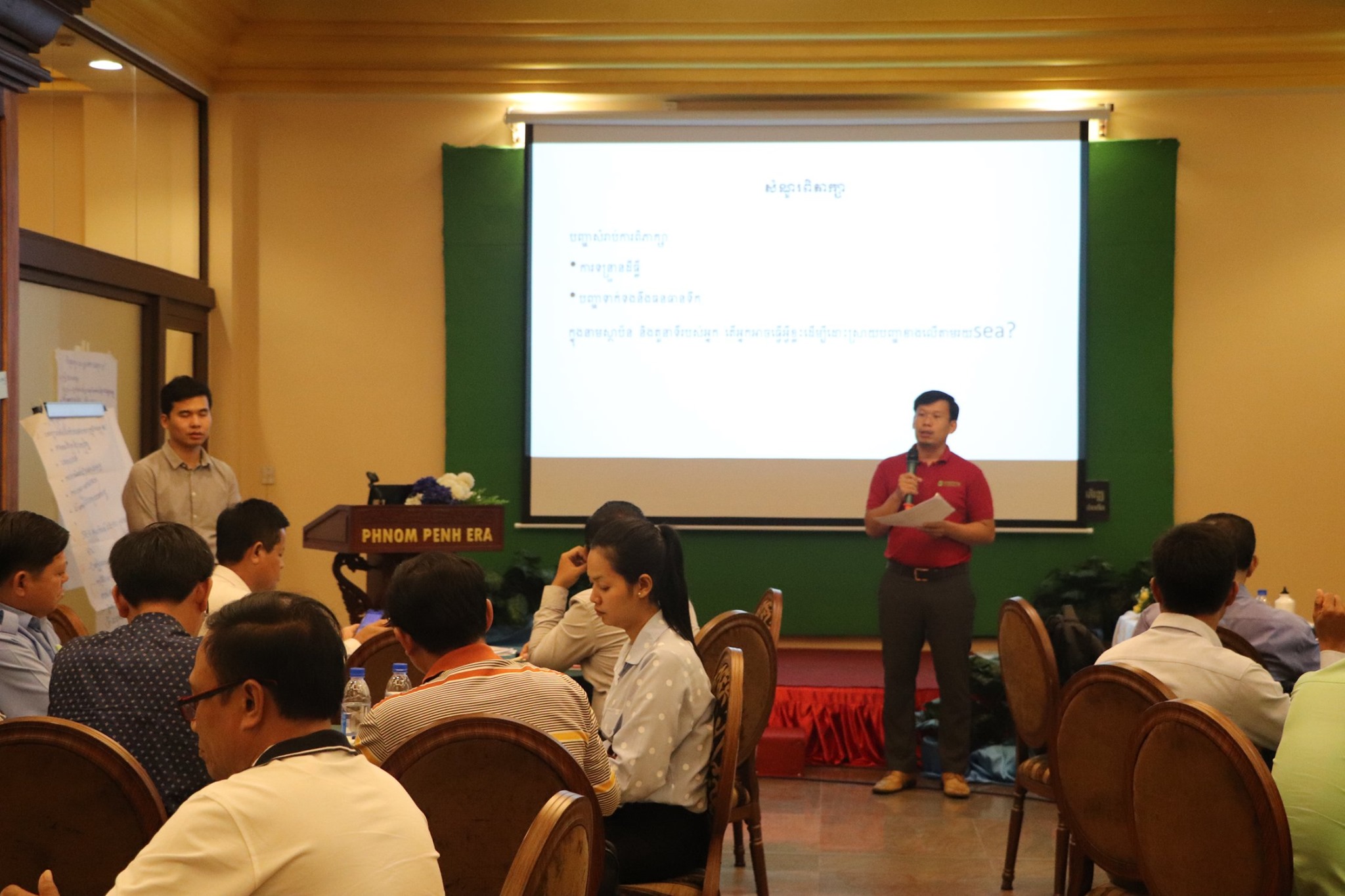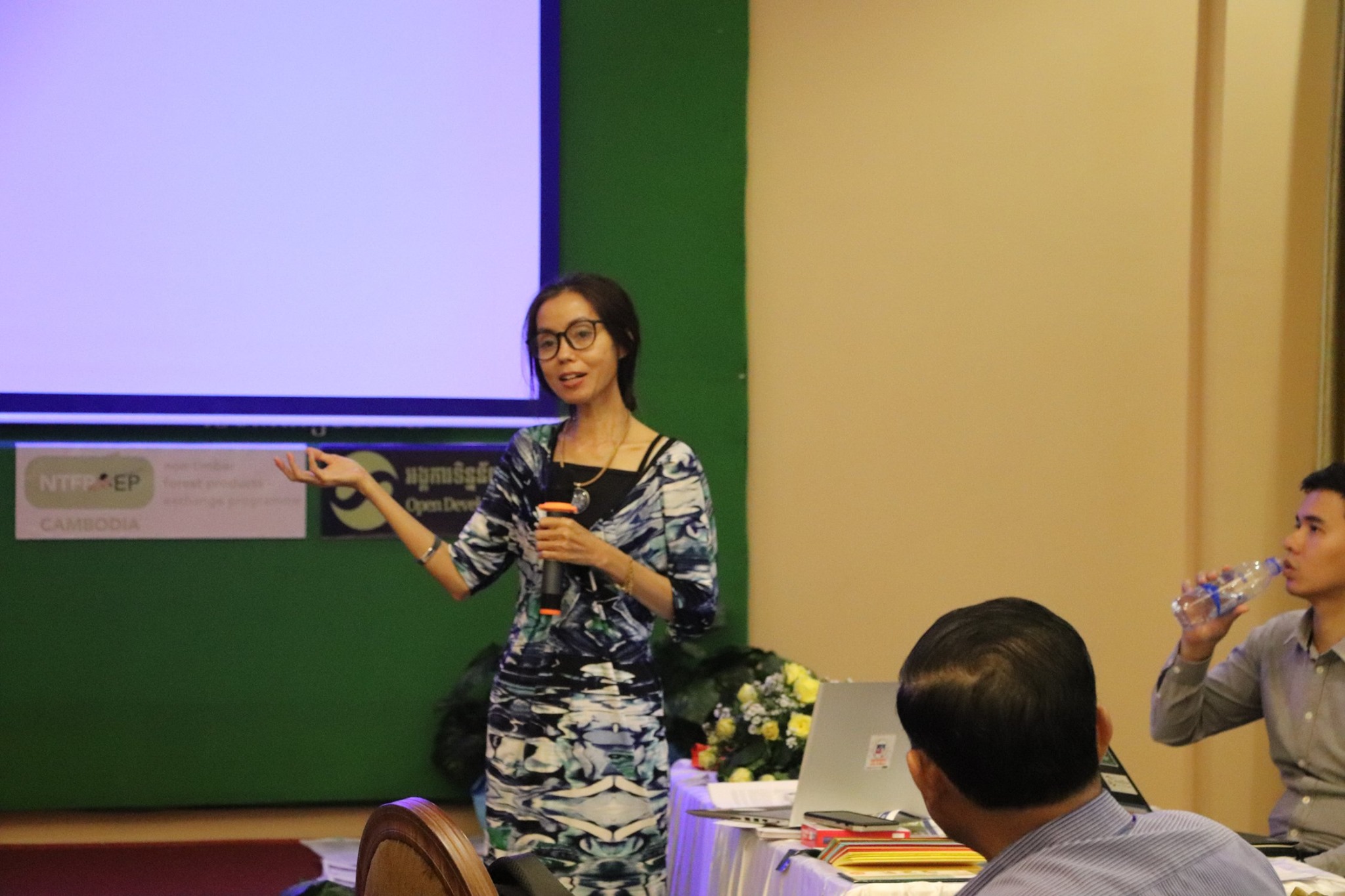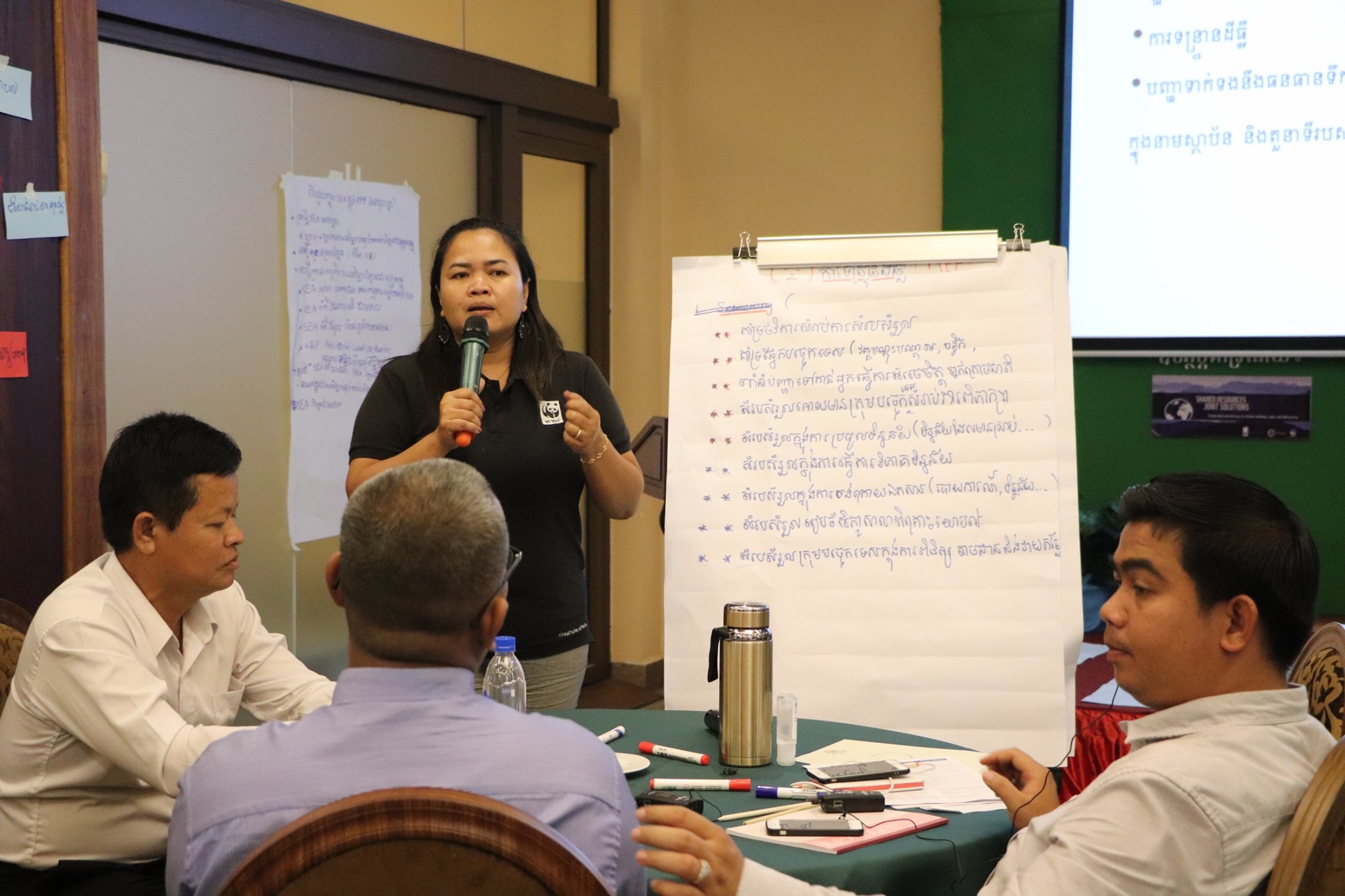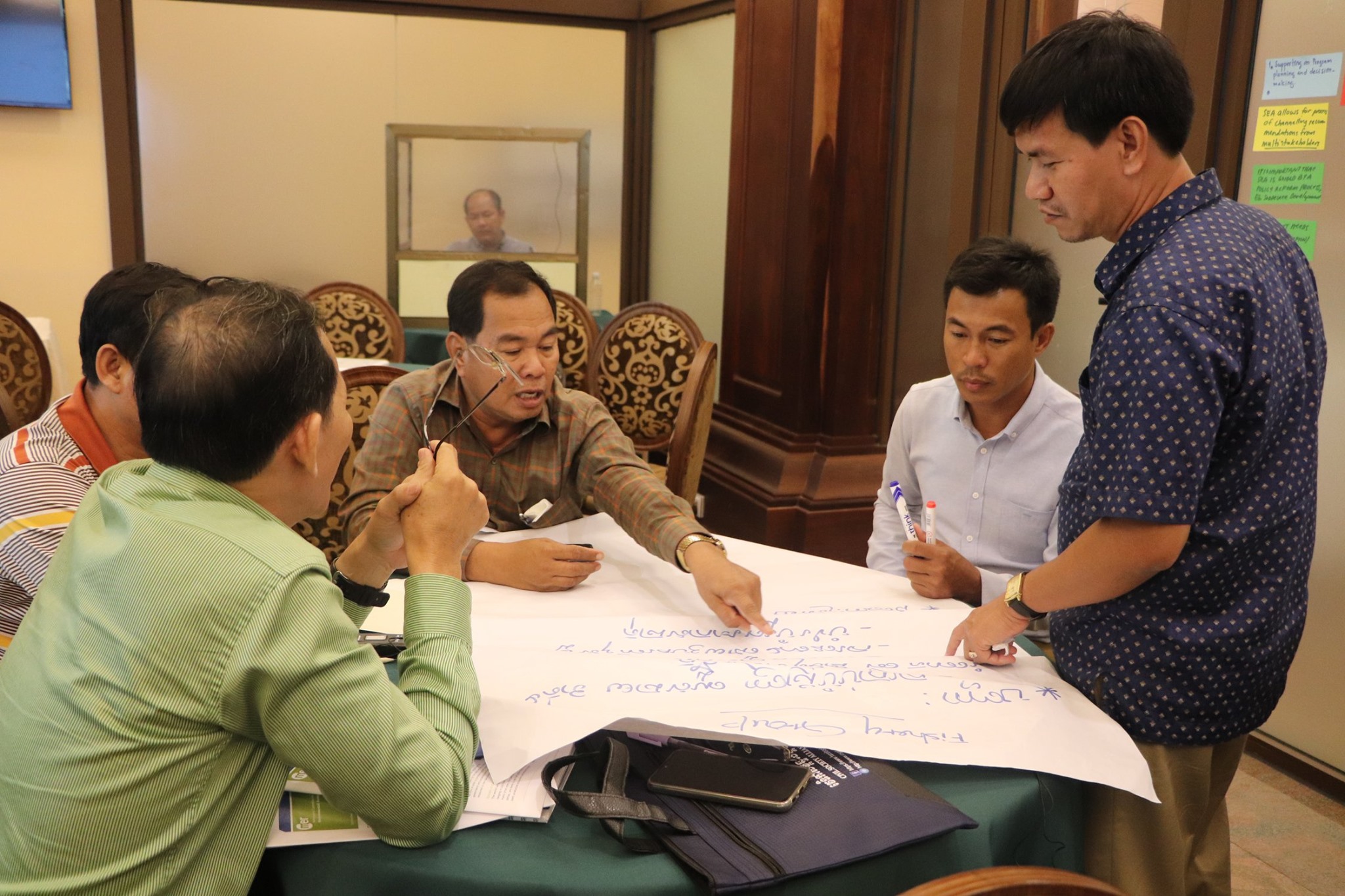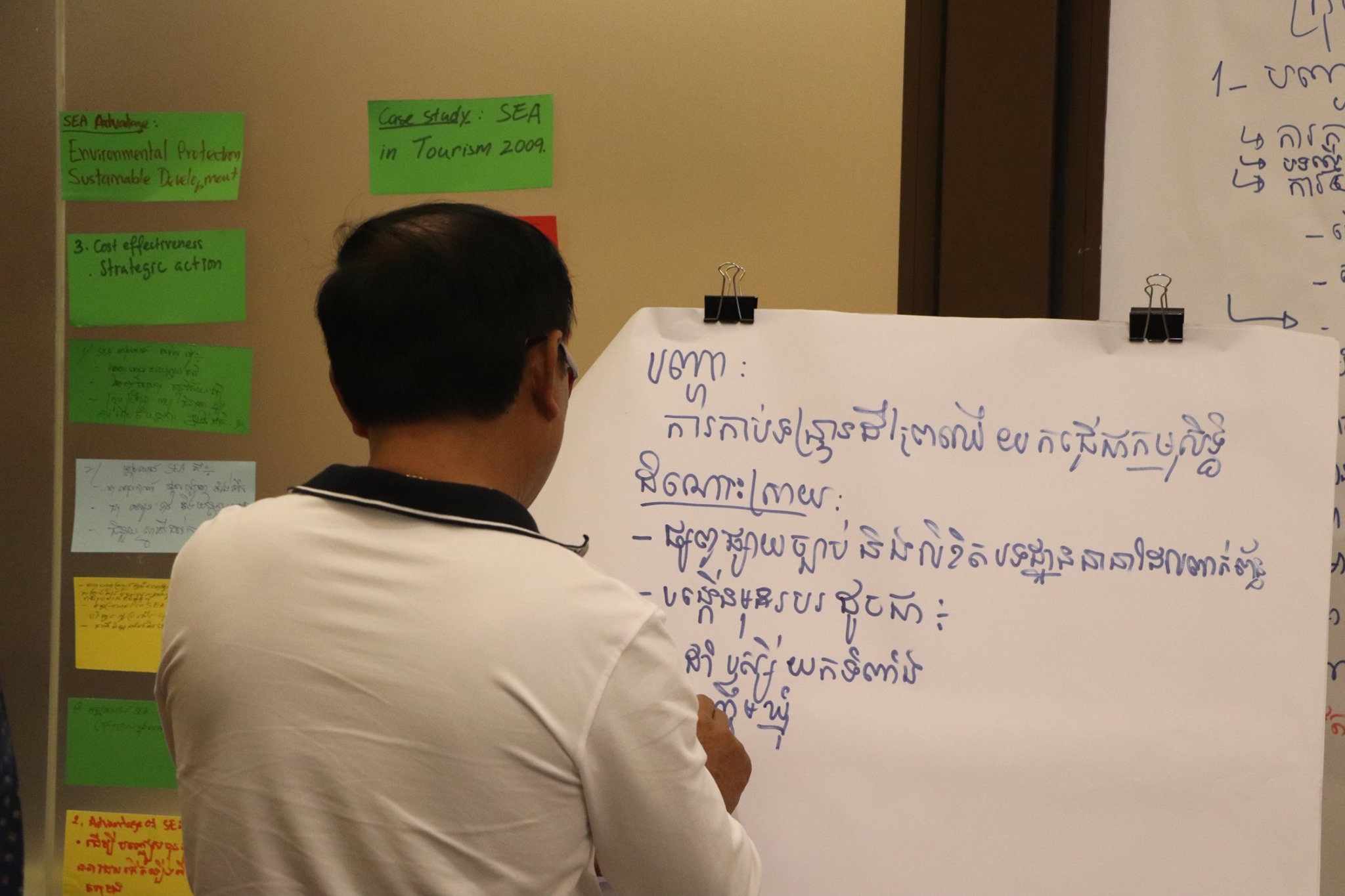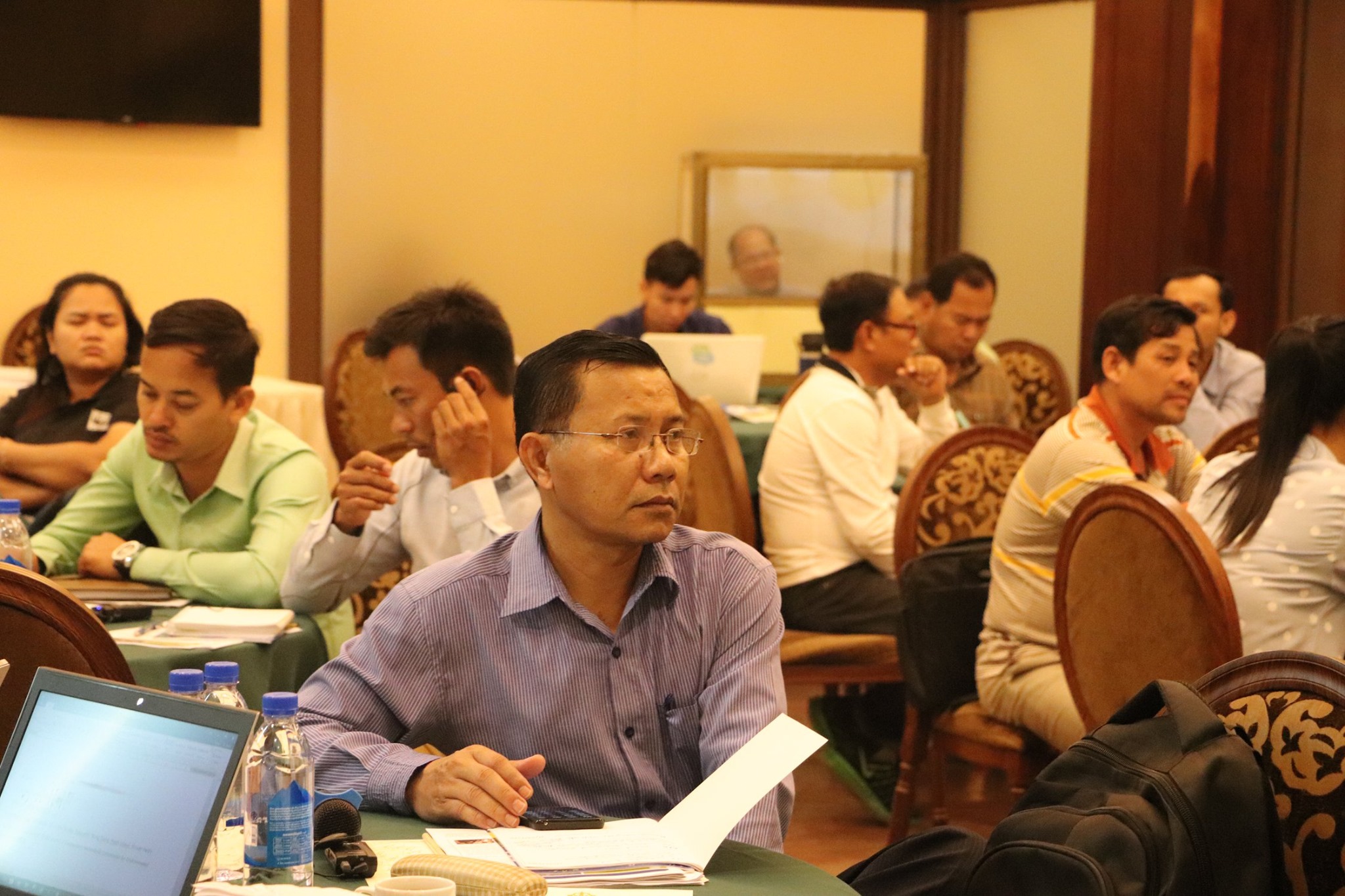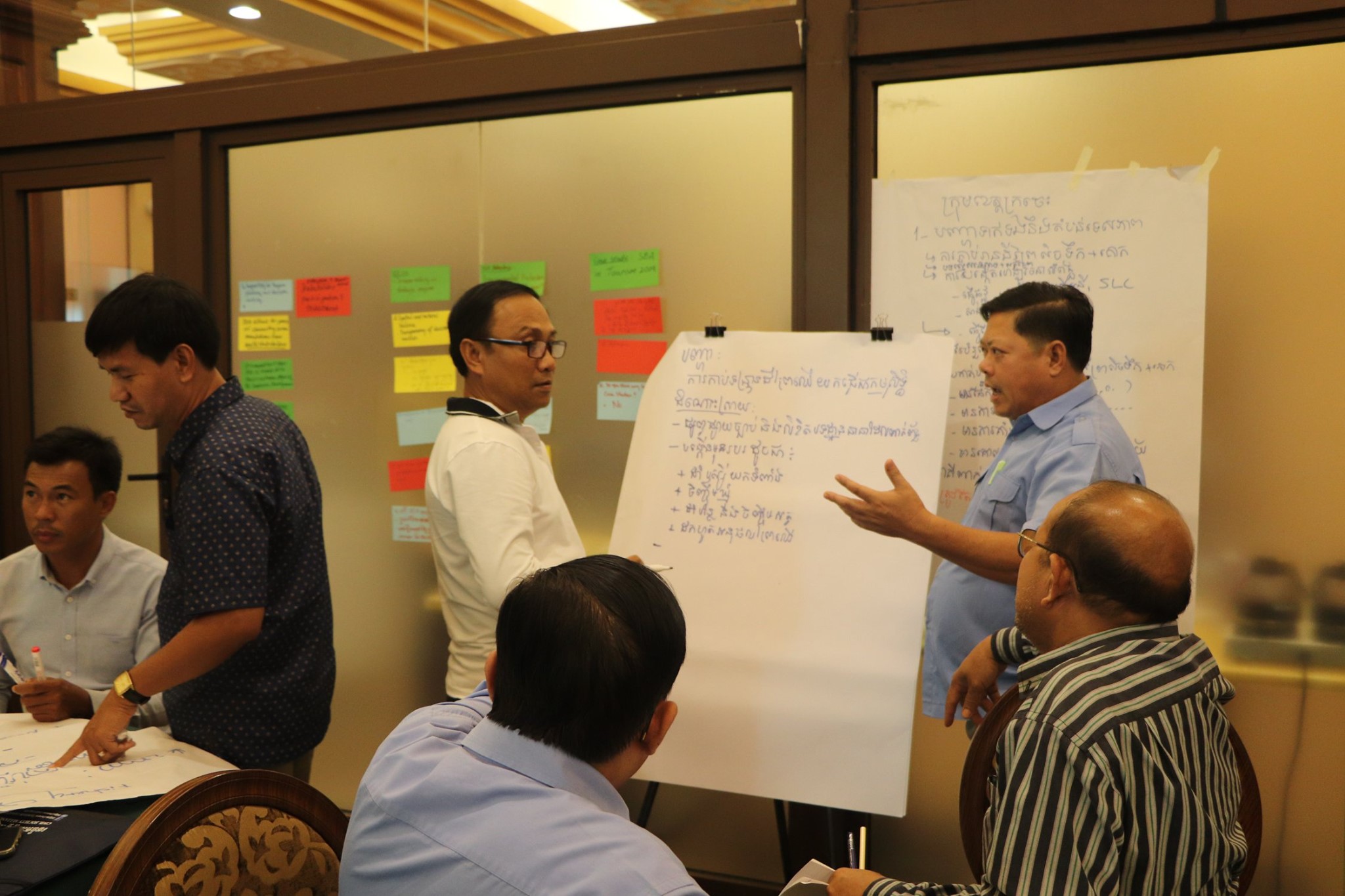First training workshop on Strategic Environment Assessment (SEA)
Open Development Cambodia (ODC) and the Non-Timber Forest Products Exchange Programme (NTFP-EP Cambodia) jointly hosted the first training workshop on Strategic Environment Assessment (SEA) under the Shared Resources Joint Solutions (SRJS) program supported by the Netherlands Committee for IUCN. The two-day training was held on March 10th and 11th of 2020 and gathered 27 diverse participants from Kratie, Ratanakiri, Steung Treng, Preah Vihear and Phnom Penh. Participants represented provincial departments of agriculture, fishery and forestry, tourism and environment as well as representatives from NGOs and implementing partners of the SRJS. The SRJS program aims to see better policy coherence and implementation with respect to the management of the International Public Goods (IPGs) – biodiversity, water and food security, and climate resilience.
What is the Strategic Environment Assessment (SEA) and why is it important?
SEA is an advanced tool used to integrate environmental and social considerations into major policies, plans and programs. Despite it has only been recently introduced, it has proven added value over other commonly-implemented and well-known environmental impact assessments (EIA). Both EIA and SEA tools are very important as they complement each other; the EIA focuses on the project level while the SEA puts the attention on policies, programs and planning. Building the capacity of relevant stakeholders on SEA seeks to contribute to sustainable development through informing strategic planning, decision-making and new initiatives on environmental and social concerns.
The countries along the Mekong River Basin share a similar topography, consisting of large lowland and fertile soils along the flooding plains of the Mekong, which has historically linked these countries through their economic activities and trade. This area surrounding the Mekong forms the Mekong Flooded Forest (MFF) landscape, which extends from the Cambodian province of Kratie up to the Laotian border. The MFF is home to extremely diverse and rich biodiversity, including several species of fish, freshwater dolphins, critically-endangered birds and river terns. Besides, the river is vital for the livelihoods of many people and, especially, indigenous people’s groups.
However, the flooded forests currently face a critical situation due to uncoordinated planning economic development and poor land management, with increasing Economic Land Concessions (ELCs) and the construction of massive infrastructures – such as hydropower dams – mining activities and overfishing. Fierce forest loss, erosion and water pollution are resulting in rapid degradation of the ecosystem and have a direct impact on the well-being of its inhabitants and indigenous groups. SEA can contribute to bringing a broader understanding of these issues and in enhancing more balanced, integral and longer-term oriented decisions.
Amidst this situation, and despite the fact that Cambodia still needs to develop a legal and policy framework on Strategic Environment Assessment (SEA) as well as the human resources and institutional capacity to implement it, SEA will be included in the Environment and Natural Resource Code of Cambodia that is currently being drafted. Therefore, the training sought to raise understanding of SEA and its management at sub-national level, and to provide the needed skills to implement the tool in land use planning.
The training
The event opened with the speech of Mr. Bunthoeun Sim, Country Program Manager of the NTFP-EP Cambodia, who explained the importance of being ready to address the upcoming developments around SEA. Mr. Socheat Penh, SEA Alumni, provided an overview of SEA, reviewing its development and its applications in different countries. He stressed that SEA needs to be introduced in early decision-making and is meant to integrate environmental considerations into decision-making.
Presentations had a very practical approach. Ms. Leyla Özay, Technical Secretary of the Netherlands Commission for Environmental Assessment (NCEA), presented on the use of SEA for land use planning in the Zambezi Region in Namibia and explained the roles of different stakeholders along the implementation stages. Ms. Leakhana Kol, SEA Alumni, presented the conduct principles and the subsequent steps to conduct SEA. Lastly, Mr. Thy Try – SEA Alumni and Executive Director of Open Development Cambodia (ODC) – outlined three different approaches to apply SEA to policy plans and programs (PPPs). The three approaches consisted of conducting SEA i) in parallel teams, one for SEA and one for PPPs; ii) in parallel teams but in close coordination and; iii) in one team, in which the responsible for SEA and PPPs work together, being this the most preferred option.
On the second day, participants learned about SCREENING and the UNECE Protocol during Mr. Socheat’s presentation and about SCOPING in SEA in Ms. Leyla’s speech. Drawing from the subsequent discussion, participants identified that a common misunderstanding is that SEA is thought to be a tool used by the national government. Despite sub-national authorities need to learn and develop competencies on SEA, they can still apply the tool in areas where they do have the mandate for planning and decision-making. The participating CSOs expressed their commitment and capacity to support sub-national governments in SEA, such as through data sharing and technical skills.
It was a highly engaging training that counted with the active participation of the audience. Participants were encouraged to speak in discussions and there were several moments to work in groups and exchange ideas with other participants. Through different group discussions, participants shared their thoughts about the adequacy of SEA, strategies that can support its implementation, mechanisms to integrate social and environmental considerations in planning, among others. Participants also identified and presented the issues faced in the four provinces represented and proposed potential solutions. Throughout these two days, participants improved their knowledge, strengthened connections and raised important concerns and challenges that need to be considered during the implementation process of SEA in Cambodia.
The SEA facilitators and participants initially planned to hold a final workshop in the first week of May, but due to the COVID-19 pandemic, this workshop has been postponed and will be rescheduled between June and September 2020. The organizers would like to thank Netherlands Committee for IUCN, as without its financial support, this training program would not have been possible.
